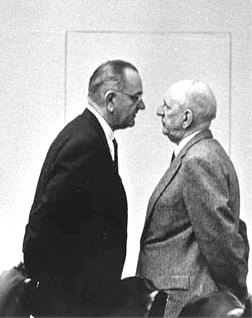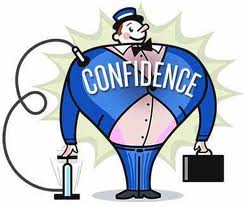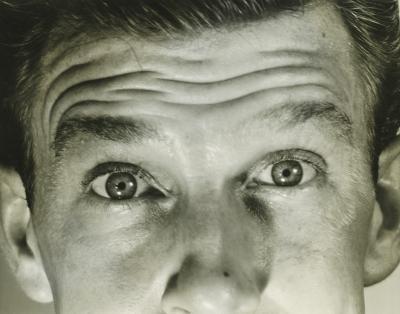Confidence
October 30, 2013 | By Rachel Hankey |
Confidence
The word confidence has always interested me,
“Timothy is a lovely boy – he just needs more confidence” ok, great – so how does Timothy get this confidence? It is not like maths test, where you just learn the answer and that’s it.
So, where do you get it from and what is it?
One particular dictionary definition is ‘belief is one’s own abilities’
Synonyms: – Trust, belief, faith, dependence, reliance, credence, courage, assurance, self-reliance, aplomb.
Let’s face it if confidence means inspiring all the above in people then who wouldn’t want more of it!?
In the scientific journal Nature, they explain how confidence plays an important role in our evolution. According to the research, confidence motivates us to take action in the face of uncertainty. The more confident we are, the more likely we are to fight for the resources we need to survive. And yet life is filled with uncertainty isn’t it , we certainly cannot control it, nor say for certain what our future holds. This realisation itself can add to our fears.
We might be worried about being rejected by at a girl at a bar, so we end up staying with our friends and never approach her. Or maybe we are afraid of starting a new career because we don’t think we will be any good at it. So instead we stick with our old job, even though we hate it.
Confidence can help us to be motivated to change things whilst the lack of it can sabotage us in many ways.
For me, confidence means knowing, trusting and being happy with yourself. Most people would like to be more confidence, especially when it comes to standing up and speaking in front of others. Many people simply don’t know where to get it.
I do not believe there are magic wands to make someone grow from a timid mouse to a courageous lion. I believe confidence takes time and that upbringing, life experiences, friends, etc, all add to (or take away) confidence. Everyone’s experience is different.
However, here are some useful tools that can help you feel more confident when you are in a challenging, such as an interview, giving a speech or presentation.
Rule 1 * PREPARATION
As mentioned earlier – who would feel confident if they had no idea what they were talking about! So, preparation is vital!! If you don’t know something – research it, If it’s a speech, rehearse it, If it’s an interview – find out about the company.
Rule 2 * PRESENTATION
How we choose to present ourselves speaks as much as our words do. Dress powerfully. Dress proudly. Don’t allow the way you dress to make you feel intimidated. Use this opportunity to bolster your self-worth and your message. It is amazing how we can feel much more confident simply by what we wear. Be comfortable – don’t go for high heels if you can’t walk in them or a shirt that’s too tight – you will worry more about this than your situation, and could undermine the way you feel.
Rule 3* POSTURE
Stand tall, sit up straight, make eye contact, be expressive and smile. Smiling is infectious and empowering. Try it. Practice the way you move and interact. It can have such a positive impact. More importantly, it will make you feel confident. If you feel confident, you will be confident and your confidence will be received. Your audience/interviewer can bask in the reflected comfort of your confidence. Know that confidence is very appealing and very reassuring to your audience. When you appear confident, your message is much more believable.
Rule 4* PRACTISE and BE BRAVE!
A bit like a child riding a bike. First off, you need stabilisers attached to your bike, then, a kindly parent with a gentle guiding hand on your back. They walk along side you, reassuring you that they won’t let you fall off. You need encouragement but you also need to feel a bit of fear. Once you realise that fear isn’t a living monster that’s out to bite you, you can keep pedaling. Keep pedaling for long enough and soon you won’t need the guiding hand, in fact you’ll be wriggling from under it, determined to ride your bike like a big boy/girl. Do you remember when you feel brave enough to repeat the process without the stabilizers? You took those baby steps until your self-belief grew into something so reassuring you knew it would be okay.
Rule 5* PRETEND
It’s simple, if you act as though you are confident, you will start to feel more confident. If you’ve followed rules 1-4 then all the groundwork is in place and for you, the feeling it, is merely a matter of time. Walk into that conference, interview or crowded hall thinking ‘I personify confidence.’
If you’d followed my rules, then trust me, you will.If you are shaking from the inside, remember the outside does not need to know. You have a choice whether or not to show people your nerves. Be self-aware and practice the above points and others won’t have a clue.
“No one can make you feel inferior without your consent.”
― Eleanor Roosevelt,




 Some people wear it like a coat, covering what they perceive to be their less confident but true self in something more robust and appealing.
Some people wear it like a coat, covering what they perceive to be their less confident but true self in something more robust and appealing.
 I’m often on the train. I actually enjoy train journeys simply because I get to indulge in one of my favourite past-times; people watching.
I’m often on the train. I actually enjoy train journeys simply because I get to indulge in one of my favourite past-times; people watching. ‘Well you weren’t with Pete!’ she asked, leaning forwards across the table. I assume she was scanning his face for clues. His eyebrows shot up and his forehead wrinkled. (This can be a sign of a liar caught in the act). He looked up to the right. ‘I was at work, I was going to meet Pete but I had to stay for a meeting, for God’s sake.’ Note this, right handed people usually look to the left to recall memories, and to the right when they are in the act of making something up.
‘Well you weren’t with Pete!’ she asked, leaning forwards across the table. I assume she was scanning his face for clues. His eyebrows shot up and his forehead wrinkled. (This can be a sign of a liar caught in the act). He looked up to the right. ‘I was at work, I was going to meet Pete but I had to stay for a meeting, for God’s sake.’ Note this, right handed people usually look to the left to recall memories, and to the right when they are in the act of making something up. Unfortunately, I reached my destination not long afterwards and I will never know if conservation was made, or numbers were swapped.
Unfortunately, I reached my destination not long afterwards and I will never know if conservation was made, or numbers were swapped.